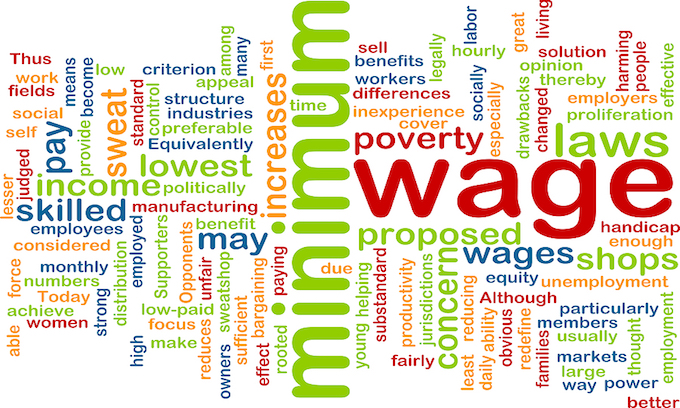Minimum wage earners received raises Sunday, as Jan. 1 ushered in the first phase of a new Colorado law that will increase the minimum wage to $12 an hour by 2020.
This would be great news, if it weren’t for the harsh realities of unfunded, one-size-fits-all government mandates.
Voters approved the wage hike by 55.4 percent in November. It was an easy sale, telling people they could simply vote a better economic future for friends, neighbors and relatives who struggle to get by.
If it works that way, we wonder why only $12 an hour. If wages can increase with a simple majority vote, we should go big. Let’s pay $30 an hour to anyone willing to punch a clock for any type of work. That would put all employees near Colorado’s medium household income of $63,909.
Of course, it does not work that way. Entry level jobs cannot support households, even if we vote to make it so.
Every action has an equal and opposite reaction, and laws that mandate wages are no exception. When we force more money into payrolls, we limit by force the financial options of those who write paychecks. The minimum wage vote did not create more capital for wages. It merely redirected money from other elements of businesses.
By increasing wages slightly — by not going big — proponents of mandatory minimums hope the damage will be gradual, sparsely allocated and mostly unnoticed.
Restaurants are affected by the minimum wage more than any other sector of business, which may become obvious to employees and customers in coming weeks.
“Some restaurateurs are cutting hours and cutting staff,” reports the Denver Business Journal’s Ed Sealover.
Additionally, as reported by the Journal, restaurants are:
– “Bumping up the number of tables that each waiter or waitress will cover.”
– “Bussers — those employees responsible for cleaning and clearing tables between customers — are getting cut at a number of restaurants.”
– “Trying to cobble together a number of solutions — a small price hike here, a reduction in service levels there — to absorb the increased costs in ways that won’t slash their staffs or send their customers fleeing.”
Diners can also anticipate lower quality food. One Colorado Springs restaurateur told the Journal he plans to use pre-processed foods to reduce costs of in-house preparation. Instead of fresh-cut onions and potatoes, prepared by on-sight employees, expect more pre-processed foods shipped frozen in bags from factories.
This is not about greed. Anyone familiar with the restaurant business knows of restaurateurs going months without paychecks as they keep fledgling businesses afloat. Though some restaurants generate enviable profits after years of success, most survive on razor-thin margins if they survive at all. Research reported by CNBC shows about 60 percent of restaurants fail within their first year, while 80 percent fail before their fifth anniversaries.
Voters meant well when they voted to raise the minimum wage. They did not intend to initiate layoffs, higher prices, cheaper food and business closures. We hope their best intentions do more good than harm, despite early indications of trouble.
The gazette editorial board
___
(c)2017 The Gazette (Colorado Springs, Colo.)
Visit The Gazette (Colorado Springs, Colo.) at www.gazette.com
Distributed by Tribune Content Agency, LLC.
—-
This content is published through a licensing agreement with Acquire Media using its NewsEdge technology.


















Recent Comments